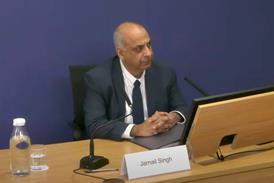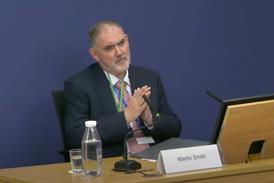A City partner banned for misleading an investigation into his expenses saw the firm’s marketing budget as 'part of his package’, a tribunal has said.
George Panagopoulos was struck off in February after the Solicitors Disciplinary Tribunal found he had been dishonest when his firm Reed Smith probed the expenses issue.
Papagopoulos, managing partner of the Athens office, was found to have altered billing documents and made a false representation to his firm as to when the amendments were made.
In a judgment published this week, the tribunal said there were no exceptional circumstances that would have justified anything less than a strike-off for the solicitor of almost 23 years.
The case had been based around a trip taken by Papagopoulos with his daughter to London in 2019, and the subsequent €3,000 (around £2,650) expenses claimed for flights, taxis, subsidence and the hotel. Most of the expenses had subsequently been written off at the point of billing and around £450 was billed to a client, later reimbursed by the firm.
The tribunal said in its judgment that Panagopoulos had attempted to ‘obfuscate’ his charging of personal expenses to the firm.

‘Whilst he stated that he considered that when expenses were not charged to a client, they would automatically be charged to him personally, he also stated that the marketing budget for the Athens office was for him to use as he saw fit, and was effectively “part of his package”,’ said the tribunal. ‘This demonstrated, at the very least, a cavalier attitude to the appropriate treatment of expenses.’
It was found he deliberately altered the detailed billing reports and then failed to volunteer the later amendments or be honest about when he changed them.
Papagopoulos, it was found, breached the firm’s trust by being untruthful during an investigation into his conduct.
‘He was an extremely experienced solicitor who was aware of the import of not amending documents that were, or might be, relevant to an investigation,’ the tribunal added.
‘His misconduct had been aggravated by his proven dishonesty. It had been deliberate and calculated, albeit that the conduct took place over a relatively short period of time. He had abused his position of trust and authority, and had sought to place blame for his actions on [his secretary].’



























